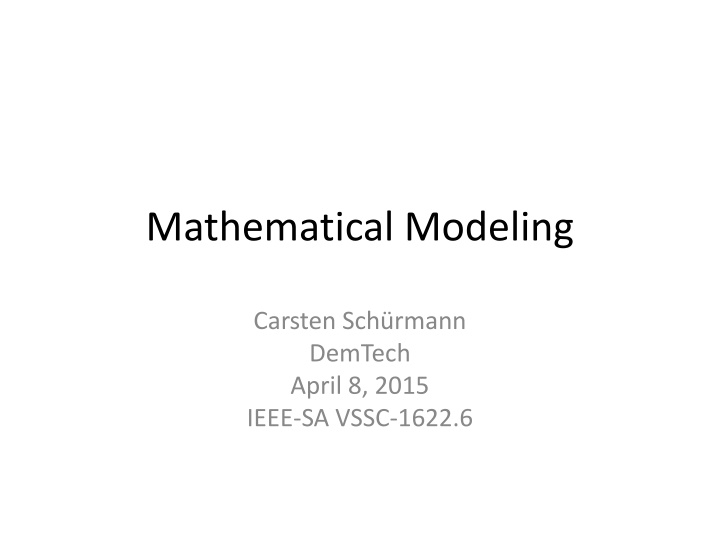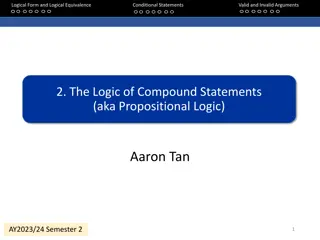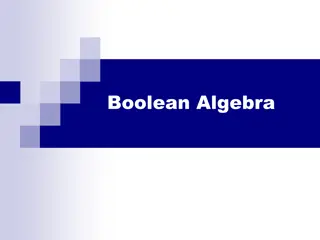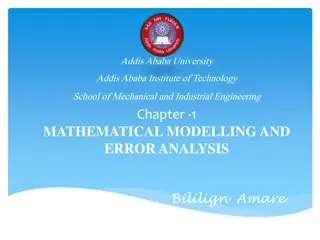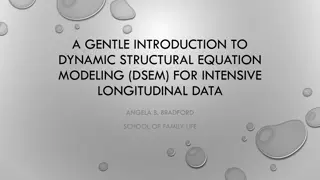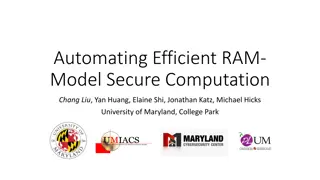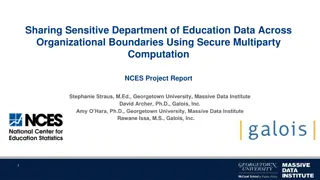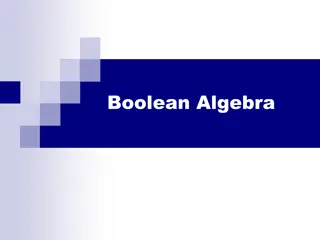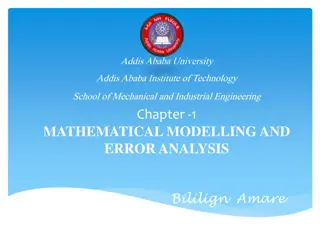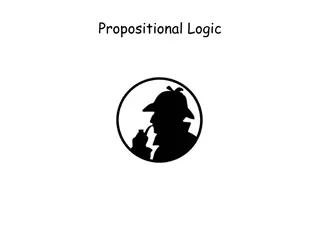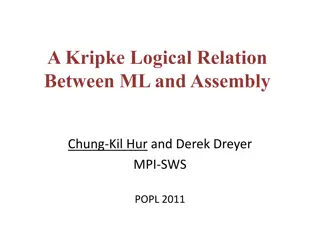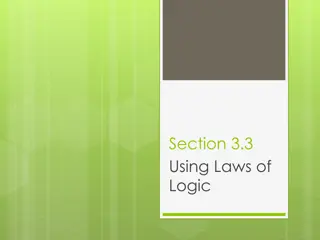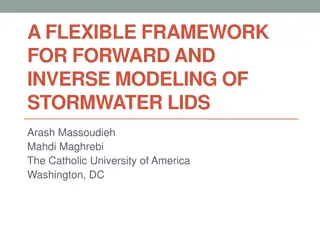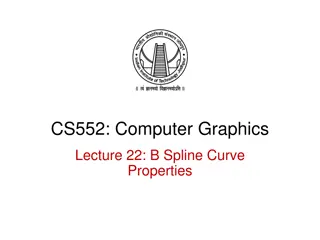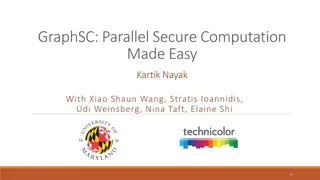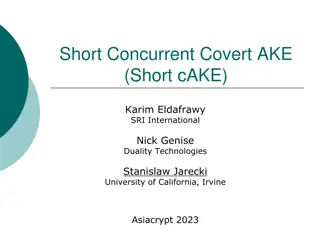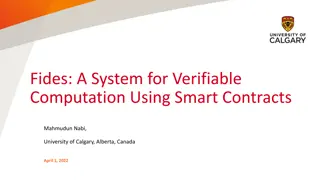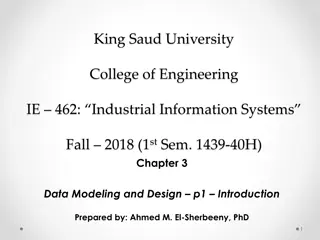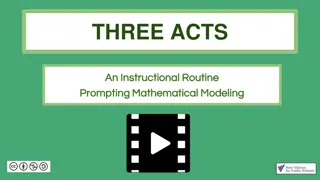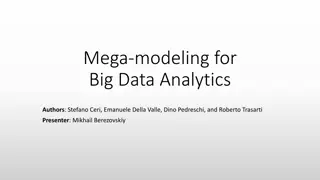Mathematical Modeling and Logical Framework in Data Computation
This content explores mathematical modeling, legislative frameworks, logical properties, voting protocols, audience assumptions, and formal presentations related to data computation. It delves into algorithmic styles, cryptographic protocols, complexity, and more.
Download Presentation

Please find below an Image/Link to download the presentation.
The content on the website is provided AS IS for your information and personal use only. It may not be sold, licensed, or shared on other websites without obtaining consent from the author.If you encounter any issues during the download, it is possible that the publisher has removed the file from their server.
You are allowed to download the files provided on this website for personal or commercial use, subject to the condition that they are used lawfully. All files are the property of their respective owners.
The content on the website is provided AS IS for your information and personal use only. It may not be sold, licensed, or shared on other websites without obtaining consent from the author.
E N D
Presentation Transcript
Mathematical Modeling Carsten Sch rmann DemTech April 8, 2015 IEEE-SA VSSC-1622.6
Objective Legislation Law Logical Framework Data Computation Logic Properties Proofs Implementation Administrative Processes Software
1. Discourse Voting Protocol Cryptography (Privacy, Security) Statistics (Audits) Logic (Distribution, Implementation) Social Choice Algorithms Complexity Impossibility Utility
2. Style Algorithmic Algorithm + control flow Justify the adherence with specification Declarative Describe the algorithm, no control flow Justify the adherence with specification Abstract Describe the specification
3. Audience The Public Assumptions of common knowledge Levels of abstraction Experts Completeness Soundness (must make sense) Courts Verifiability Dispute resolution (no choice left to imagination)
Logical Framework ToolBox Logical Framework Data: Votes, Ballots, Totals Computation: Algorithms
Pictoral Presentation A picture says more than 100 words Examples: Category Theory, Geometry, Trigonometry
Declarative (Algebraic) Presentation Let P=(xP,yP) and Q =(xQ,yQ) Define R = P + Q where R = (xR,yR) Case 1: P Q and P Q xR = s2 xP xQ yR = yP+ s(xP xQ) s = (yP yQ)/(xP xQ) Case 2: -P = Q P + Q = Case 3: P = Q P+ Q = 2P Constructive Logics: If there is a solution then there is a program that actually computes it!
Dataflow Presentation P=(xP,yP) Q =(xQ,yQ) R = (2xR, 2yR) P = Q R = -P = Q s = (yP yQ)/(xP xQ) xR = s2 xP xQ yR = yP+ s(xP xQ) R = (xR, yR)
Formal Presentation Logics Intuitionistic Logic Linear Logic Temporal Logic Dynamic system Model Checker Type theories Active area of research Coq, Agda, Twelf Tool support essential A formalization of Elliptic Curves in Coq
Logic ToolBox Logic Properties: Requirements, Specifications Proofs: Arguments, Equivalences
Logics First-order logic KeY system Higher-order logics Temporal Logic Model Checker Type theories Active area of research Coq, Agda, Twelf For all points P + Q it holds: P + Q = Q + P And in the Coq system:
Case Study First-Past the Post Logical Framework: Linear Logic The Logic of Food * -o Logic: First-order Logic
Objective Legislation Tally all ballots for each hopeful candidate. Logical Framework Data Computation Implementation Administrative Processes Software
Declarative Statement count-ballots (U + 1) H * uncounted-ballot C * hopeful C N -o (hopeful C (N + 1) * count-ballots U H) If you count ballots find an uncounted ballot for C where C is still in the race then increase C s tally and continue counting Number uncounted ballots: U Number hopefuls: H Name of a candidate: C Number of ballots in a tally: N Propositions: count-ballots UH uncounted-ballot C hopeful C N
Objective Legislation Tally all ballots for each hopeful candidate. Logical Framework Data Computation Logic Properties Proofs Implementation Administrative Processes Software
Abstract Specification: Each Vote is Counted Once
Conclusion Narrowing the gap between law and maths Laws easier to interpret, implement Completeness Soundness Analysis becomes easier Long term benefits
